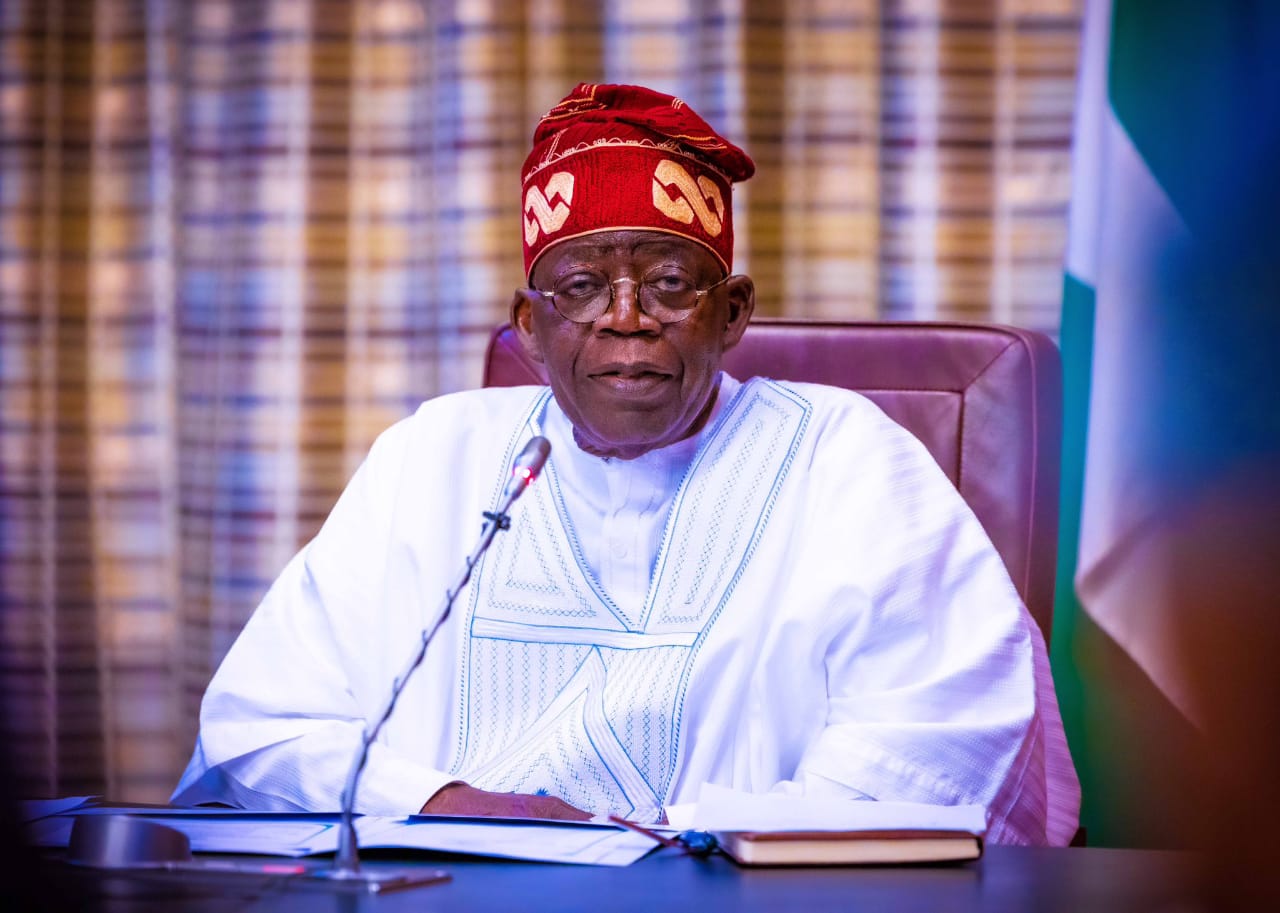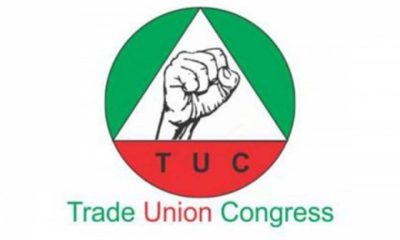NEWS
FG Denies Stoking Food Price Inflation

The Federal Government has refuted claims that it is partly responsible for the current rising prices of food items in the country.
There had been concerns that the government’s practice of mopping up grains into the national Strategic Grains Reserves (SGRS) during harvests was responsible for the high costs of food products in the market.
Food inflation has remained a major challenge in the Consumer Price Index (CPI), which measures inflation.
Analysts also blamed the situation on demand-supply gaps as what is available can’t satisfy the demands of a growing population.
The composite food index rose to 17.20 per cent in March compared to 22.95 per cent recorded in March 2021.
Month-on-month, the food sub-index increased to 1.99 per cent in March, up by 0.12 per cent from 1.87 per cent in February.
However, speaking against the backdrop of allegations that the federal government’s practice of mopping up grains was contributing to food inflation, the Minister of Agriculture and Rural Development, Muhammad Abubakar, who spoke in an interview said that the government was only buying off the excess grains in the market.
But critics insisted that food production was not enough to talk about buying off excess grains.
The minister said, “No it’s not mopping; the federal government is buying the excess grains that are there to be bought.
“If it is not available, we will not buy and stock- what’s the point of stocking when people need it?”
Abubakar added, “So we are currently releasing and there are grains in the market.”
He however said though political commitment is absolutely fundamental for addressing the food security challenge, it is “not the complete answer.”
He said, “Strengthening food systems and chains is a shared responsibility. Governments, industry, and consumers all have a vital role and must work together to ensure ‘farm to the table’ food security.”
Meanwhile, worried about the rising inflation, particularly the food component, President Muhammad Buhari had recently authorised the release of 40,000 metric tons (MT) of grains from the National Strategic Grains Reserves (SGR) to vulnerable Nigerians to cushion the effects of rising prices of food items.
The government’s move was aimed at cushioning the effect of high prices of commodities across the country during the Ramadan, Easter, and Sallah festivities.
Analysts also believed the global supply shortages caused by the Russian-Ukraine war is exerting significant pressure on food prices, especially wheat as local production remained inadequate in satisfying demand.
NEWS
Tinubu Initiates First National Industrial Manpower Devt Policy

President Bola Tinubu on Tuesday announced plans for Nigeria’s first-ever National Industrial Manpower Development Policy.
Tinubu, represented by the Vice-President Kashim Shettima, announced this in his keynote address at the opening of the National Industrial Manpower Summit (NIMS) 2025 at the State House Conference Centre, Abuja.
The theme of the summit was: ‘Manpower Development: The Bridge Between Potential and Productivity’.
It brought together government officials, industry leaders, academia, and international partners to develop actionable recommendations for workforce development.
The president stated that the country’s greatest asset lies in its people rather than its natural resources.
He pointed to the urgent need to bridge the gap between educational output and industry requirements to unlock Nigeria’s economic potential.
He told the participants that an improvement in human capital, along with infrastructure and sound policy was the bridge between development and setback in every nation.
The president maintained that the disruptive technologies of the era required a constantly evolving workforce, warning that Nigeria risks widening the skills gap if it fails to prepare adequately for the demands of the new technological order.
He called for an industrial skills database, sector-specific manpower roadmaps, and an elevated status for vocational and industrial training.
Tinubu insisted that welders, machinists, technicians, software engineers, and factory operators must be treated with the dignity, respect, and opportunity they deserve.
The Minister of State for Industry, John Enoh, said the summit was a testament to how president Tinubu’s leadership is always touching the right spots.
He added that it was very intentional of him to appoint the first Senior Special Assistant on Industrial Training and Development.
The minister said that the summit was not just a ceremony or another line in the calendar of events, but a crossroads where Nigeria elects whether to remain as a nation of vast potential – often admired.
He said,” But unrealised, or whether the country is ready to step forward as a nation whose productivity matches its promise.”
Minister of Industry, Trade and Investment, Dr. Jumoke Oduwole, said national manpower was a key ingredient for attracting and retaining domestic investment for industrialisation to accelerate Nigeria’s economic development.
Similarly, the Senior Special Assistant to the President on Industrial Training and Development, Adamson Oluwatoyin, said the summit was a turning point in the collective quest to shape the future of Nigeria’s workforce under the vision of Tinubu.
Oluwatoyin said that manpower development was the bridge between the nation’s abundant potential and the productivity required, adding that Nigeria has the resources, talent and the ambition.
He, however, said that without skilled, adaptable and innovative people, the country’s industrial dream will remain unreleased.
Also speaking, the Director-General, Industrial Training Fund (ITF), Dr. Afiz Ogun, said the summit offered an opportunity for policy dialogue, setting up national targets in skills development and discussing the framework for mobilising national resources in a cohesive manner.
Ogun commended Tinubu for his foresight in appointing square pegs to fill square holes in relevant Ministries, Departments and Agencies (MDAs), with mandates on skills as new perspectives in dealing with the nation’s industrial manpower problems as they emerge.
Foreign News
Australia PM Says Israel’s Netanyahu ‘In denial’ about Gaza War

Australia’s prime minister has accused his Israeli counterpart Benjamin Netanyahu of being “in denial” over the consequences of the war in Gaza.
Anthony Albanese on Monday announced his country would recognise a Palestinian state at the UN General Assembly in September, following similar moves by the UK, France and Canada.
Albanese said frustration with the Israeli government had played a role in the move, saying Australians “want to see the killing and the cycle of violence stop”.
Israel, under increasing pressure to end the war in Gaza, has said recognising a Palestinian state “rewards terrorism” and Netanyahu called the decision taken by Australia and other allies “shameful”.
Netanyahu and his government have been facing growing condemnation over reports of starvation in Gaza.
Five people have died from malnutrition in the past 24 hours, including one child, according to the Hamas-run health ministry, bringing the total number of malnutrition deaths to 222 – including 101 children.
Israel denies there is starvation in Gaza and has accused UN agencies of not picking up aid at the borders and delivering it. The UN has rejected this, saying it faces obstacles and delays while collecting aid from Israeli-controlled border zones.
Speaking to the Australian Broadcasting Corporation on Tuesday, Albanese said he had spoken to PM Netanyahu last Thursday to inform him of Australia’s decision.
“The stopping of aid that we’ve seen and then the loss of life that we’re seeing around those aid distribution points, where people queuing for food and water are losing their lives, is just completely unacceptable. And we have said that,” he said.
“I spoke with PM Netanyahu. He again reiterated to me what he has said publicly as well, which is to be in denial about the consequences that are occurring for innocent people.”
Albanese had earlier said the decision to recognise a Palestinian state was made after receiving commitments from the Palestinian Authority (PA), which controls parts of the Israeli-occupied West Bank, that Hamas would play no role in any future state
The move has drawn a mixed response in Australia, with the Executive Council of Australian Jewry calling it a “betrayal”, and some Palestinian activists saying it doesn’t go far enough.
Right-leaning opposition leader Sussan Ley said the decision was “disrespectful” to the US, a key Australian ally.
Earlier this month, a pro-Palestinian protest drew at least 90,000 supporters who walked across Sydney Harbour Bridge, a day after a court ruling allowed the demonstration to happen.
Netanyahu said in a press conference over the weekend that it was “shameful” for countries including Australia to recognise a Palestinian state.
“They know what they would do if, right next to Melbourne or right next to Sydney, you had this horrific attack. I think you would do at least what we’re doing.”
More than 61,000 people have been killed as a result of Israel’s military campaign since 7 October, according to the Hamas-run health ministry.
Israel launched the offensive in response to the Hamas-led attack on 7 October, in which about 1,200 people were killed and 251 others were taken hostage.
| ReplyReply allForwardAdd reaction |
NEWS
NAICOM constitutes 11-member recapitalization committee

By Tony Obiechina Abuja
The National Insurance Commission (NAICOM) has constituted a 2025 Recapitalization Committee, following President Bola Ahmed Tinubu’s assent to the Nigeria Insurance Industry Reform Act (NIIRA) 2025.
Chaired by Mrs.
Oluwatoyin Charles, Director of Supervision, the Committee’s primary responsibility is to oversee the implementation of the recapitalization program.This includes ensuring compliance with revised capital requirements and promoting transparency and integrity in sourcing and verifying capital inflows.
The Commissioner for Insurance, Mr. Olusegun Ayo Omosehin, emphasized the critical role of recapitalization in stabilizing the industry and contributing to Nigeria’s $1 trillion economy vision during the Committee’s inauguration in Abuja on Tuesday
He urged the 11-member Committee to approach their task with professionalism, diligence, and commitment to the common interest, assuring them of necessary support.
Committee’s terms of reference include to create a detailed plan for the Commission and the insurance industry; develop guidelines and circulars on recapitalization; recommend the composition of Minimum Capital Requirements, and incentives and Concession Identify incentives and concessions that may be obtained from other regulatory authorities.
The Committee will submit monthly progress reports to Management and provide quarterly updates to the Governing Board and stakeholders.
NAICOM is confident that the Committee will successfully deliver on its mandate, shaping the future of Nigeria’s insurance sector.
“The Committee’s success is vital to the industry’s stability and growth, and NAICOM looks forward to collaborating with all stakeholders to achieve this objective.
“With the NIIRA 2025, NAICOM aims to position the insurance industry for greater transparency, innovation, and global competitiveness, aligning with the Federal Government’s vision of achieving a $1 trillion economy”, the Commission added.
| ReplyReply allForwardAdd reaction |



















